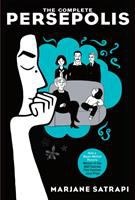(Link directly to our Comics Discussion Guides)
One of the focuses of the Ohio Center for the Book is to promote the medium of comics in light of our state’s rich heritage of comics creators like Richard F. Outcault; Frederick Opper; Milton Caniff; creators of the original superhero – Superman! – Jerry Siegel and Joe Shuster; and up to the present with Brian K. Vaughan, Jeff Smith, Brian Michael Bendis, and many, many others! In fact, The Washington Post called Ohio “the cradle of great cartoonists“!

The resource guides or “toolkits” are modeled after the Get Graphic! with the Ohio Center for the Book discussions which have been hosted at the Cleveland Public Library (home of the Ohio Center for the Book) since 2014. After many years of leading discussions, we thought it was time to share with others what we have learned by creating toolkits to promote the study of comics with other libraries, classrooms, book clubs, independent readers, and anyone else that wants an education in comics! The toolkits offered here cover a selection of our favorites, representing some of the most popular comics as well as some we consider among the most significant works of the medium like Persepolis, Maus, and Fun Home. The toolkits themselves were created by Ohio Center for the Book Scholar-in-Residence Dr. Valentino Zullo in 2020 and 2021.

Each of the toolkits is designed to help anyone lead a discussion for new comics readers as well as for those more acquainted with the medium. We also encourage you to consider including comics in academic discussions for topics such as the Holocaust, LGBTQ History in the United States, the US Civil Rights Movement, and others. We’ve included suggestions on the toolkit list.
There are also levels to the discussion and supplemental materials that allow you to choose your own adventure as you prepare your sessions. Each toolkit includes:
- a short description of the book
- a biography of the author
- background material to provide context
- general discussion questions
- supplemental questions derived from interviews with the creator(s) and scholarly writings about the books and associated topics
- a sampling of online videos and other materials connected to the book’s topic
- a suggested reading list that will lead to the next book discussion!
Finally, and most importantly, we hope that you will enjoy your discussions as much as we did! The subject matter can be intense, unsettling, and overwhelming, but we encourage you to take joy in the shared learning that can take place from in-depth discussions. Share these toolkits far and wide, and let us know how they worked for you.
